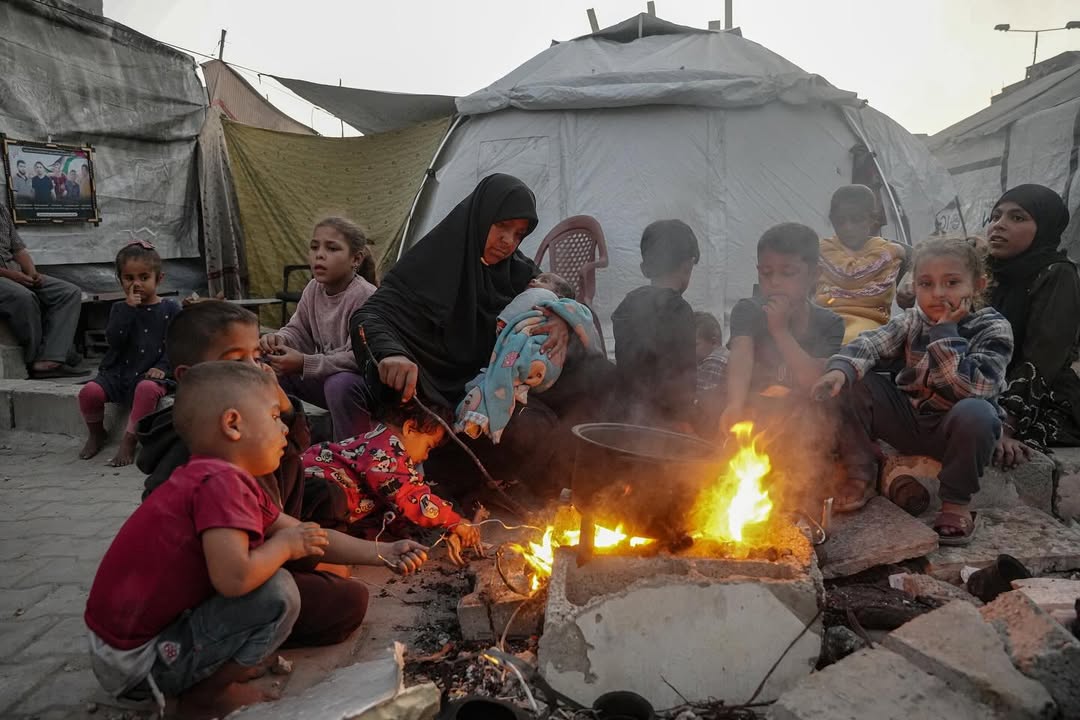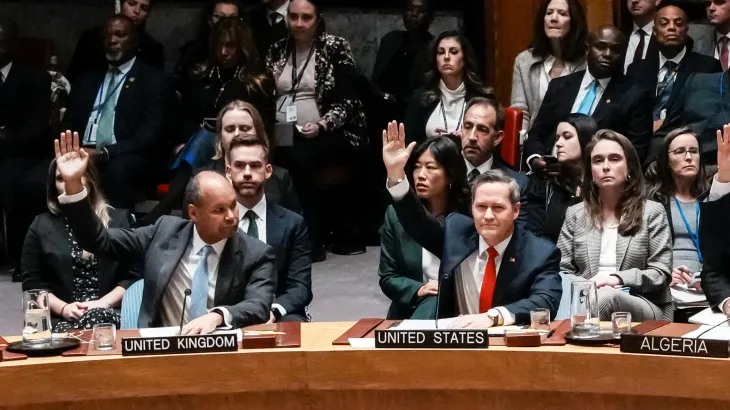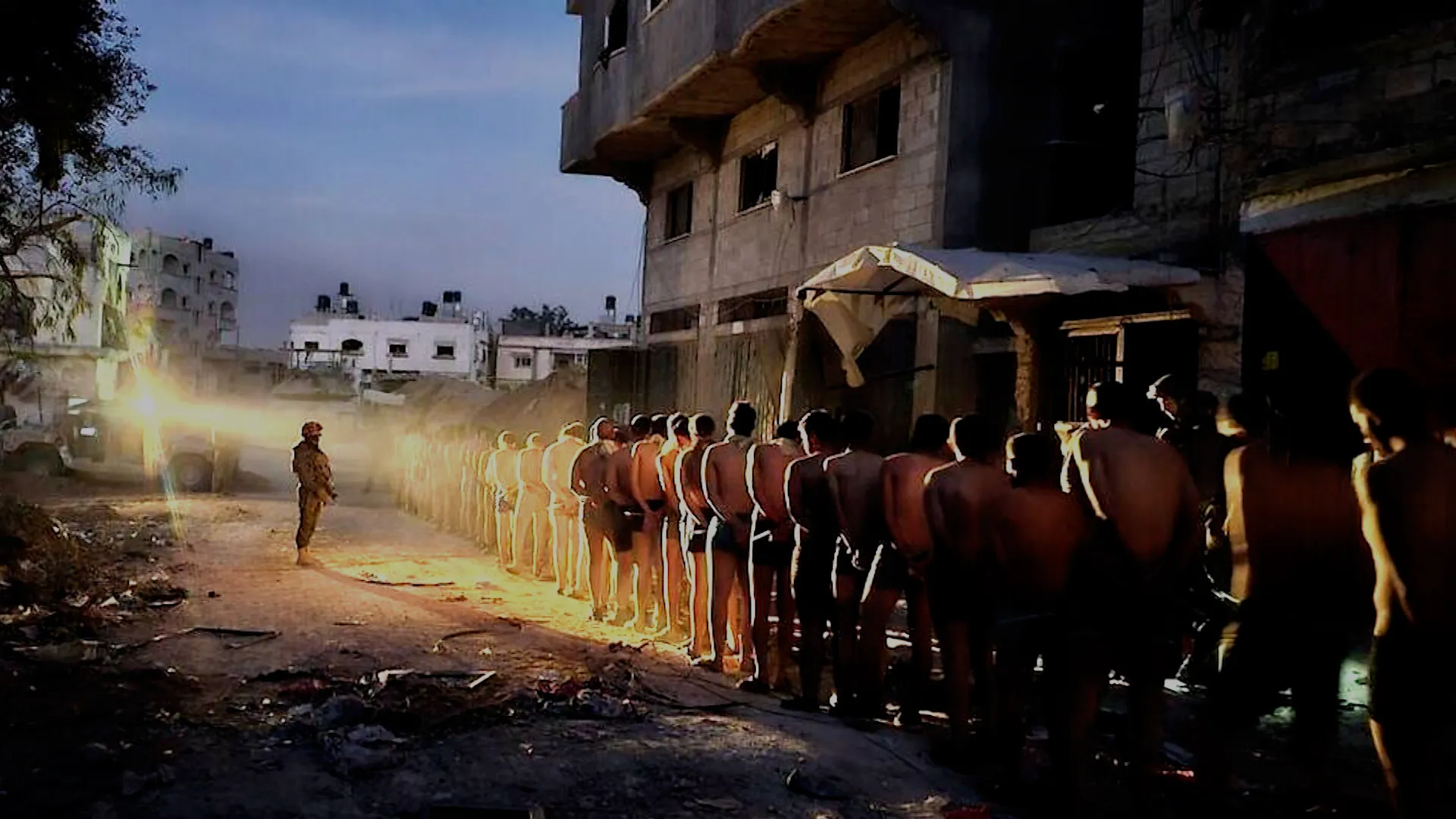Inside a tent in a Gaza City neighborhood, Tita Reda Aliwa prepares a single meal for her 36 grandchildren. They jostle each other, each hoping to get just one spoonful of lentils.
“It’s my turn, Tita Reda,” one of the children pleads. The word Tita is Arabic for grandmother, commonly used by grandchildren to address their grandmother.
In an interview with Quds News Network, Aliwa said, “My children once cared for me, now I am caring for their children.”
Her five sons were killed in two Israeli attacks that took palce four days apart in September while they were sheltering in a Gaza City displacement camp, only days before a fragile ceasefire was signed on October 10. Aliwa herself was injured in one of the attacks and fell into a coma.
When she awoke, her husband broke the devastating news: all her sons were gone. Despite her doctors’ warnings, she left the hospital almost immediately, driven by concern for her grandchildren.
“The only thing on my mind in the hospital was the children,” she told Quds News Network.
The 60-year-old and her husband are now the sole caregivers for their grandchildren, trying to rebuild a life shattered by the two-year Israeli genocide.
A Heavy Burden
Her grandchildren, ranging in age from just one and a half months to 17 years, all survived the Israeli attacks. But the weight of responsibility soon became clear.
Without a source of income, the family relies on food distributions, but securing enough to eat remains a daily struggle.
“I take whatever I can get,” Aliwa said. “Some days I find something; other days, nothing at all.”
Living Near Death
The family currently lives near the “yellow line” in the Shujaiya neighborhood in Gaza City, surrounded by rubble. The yellow line is a vague, invisible demarcation line separating the Israeli occupation forces from certain areas of Gaza, while maintaining control over approximately 50% of the enclave.
They sleep on just two mats, and their tent is dilapidated.
Explosions are a constant backdrop to their lives, as Israeli attacks continue on the other side despite the ceasefire.
Aliwa says she fears she may lose her grandchildren amid the ongoing Israeli violations of the truce. “What kind of ceasefire is this? No one has provided us with tents or food. What sin have these young souls committed?” she said, adding, “We are afraid the war could start again.”
Among Thousands of Orphans
Aliwa also worries constantly about the future. “If something happens to me, what will happen to all 36 of them?” she asked. “They’ll be street kids.”
The grandchildren struggle with grief and trauma. When they ask about their parents, she tells them they are in Heaven.
“The young ones say, ‘OK, Tita, let’s go to Heaven now to see them,’” she said. “The oldest say, ‘Life was beautiful before they were killed. Now, our life is dark.’”
At least 40,000 children in Gaza have lost one or both parents during the genocide, according to a report issued in April by the Palestinian Central Bureau of Statistics (PCBS), which called it “the largest orphan crisis in modern history.” Among them are about 17,000 children who have been deprived of both parents since October 2023.
Aliwa’s 13-year-old granddaughter Ibtisam said, “I remember our home and all the memories I had there with my mum and dad, in their room. And now it’s gone.”
“We used to have fun every day, sitting in their room, playing together, and now it’s all gone.”


